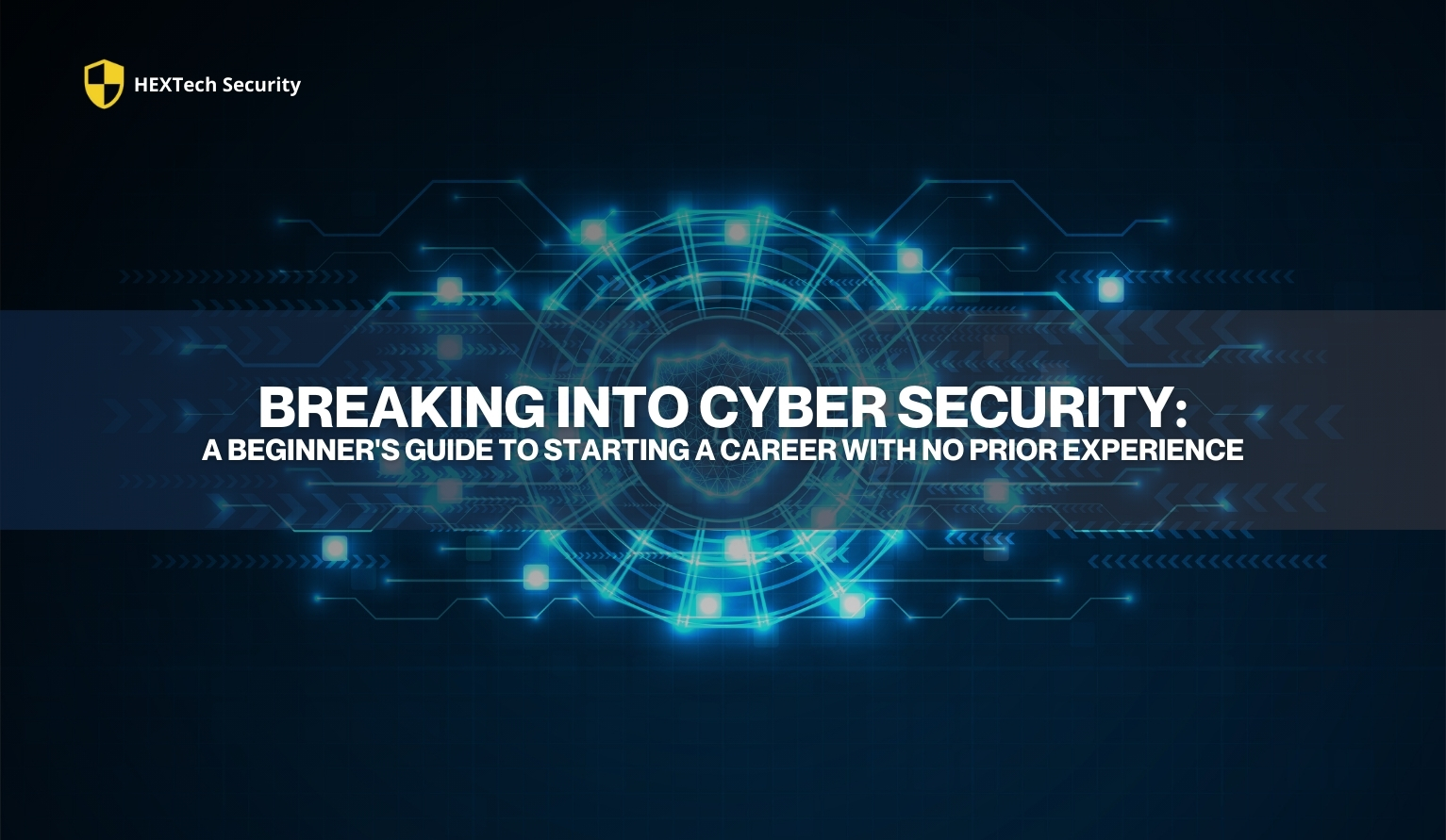Introduction to Cybersecurity
The field of cybersecurity stands as a crucial pillar in our digital world, safeguarding information from ever-evolving threats. This dynamic domain, where professionals strive to protect data and systems from cyber attacks, has become indispensable in both the private and public sectors. The demand for skilled cybersecurity experts is surging, driven by the increasing reliance on digital technologies and the corresponding rise in cyber threats. According to a report by CompTIA, the cybersecurity job market has seen significant growth, indicating a robust demand for these professionals.
This growth is not just in numbers but in diversity too. Cybersecurity roles span a wide range from network security analysts to digital forensics experts, each playing a pivotal role in securing digital assets. With cyber threats becoming more sophisticated, the need for innovative and adept cybersecurity professionals is more pressing than ever. This trend underscores the importance of cybersecurity as a career choice, offering not just job security but also the opportunity to make a significant impact in protecting sensitive data and infrastructures in our increasingly digital world.
Understanding the Basics: What is Cybersecurity?
Cybersecurity is the practice of protecting systems, networks, and programs from digital attacks. These cyberattacks are usually aimed at accessing, changing, or destroying sensitive information; extorting money from users; or interrupting normal business processes.
Definition and Scope of Cybersecurity
At its core, cybersecurity is about safeguarding information from unauthorized access and ensuring the integrity and confidentiality of data. It’s a broad field that encompasses everything from securing personal data on your smartphone to protecting national security information. The scope of cybersecurity is constantly expanding as new technologies emerge and cyber threats evolve.
Key Cybersecurity Concepts for Beginners
- Network Security: This involves measures to protect computer networks from intruders, whether targeted attacks or opportunistic malware.
- Application Security: Focused on keeping software and devices free of threats. A compromised application could provide access to the data it’s designed to protect.
- Information Security: Protects the integrity and privacy of data, both in storage and in transit.
- Operational Security: Includes the processes and decisions for handling and protecting data assets. This includes the permissions users have when accessing a network and the procedures that determine how and where data may be stored or shared.
- Disaster Recovery and Business Continuity: Defines how an organization responds to a cyber-security incident or any other event that causes the loss of operations or data. Disaster recovery policies dictate how the organization restores its operations and information to return to the same operating capacity as before the event.
- End-user Education: Addressing the most unpredictable cyber-security factor: people. Anyone can accidentally introduce a virus to an otherwise secure system by failing to follow good security practices.
Each of these areas is critical in building a robust cybersecurity framework. Understanding these concepts is the first step in recognizing the vastness and importance of the field. As technology integrates deeper into our lives, the role of cybersecurity becomes more vital and complex, making it an exciting and essential area of study and work.
Why Choose a Career in Cybersecurity?

Choosing a career in cybersecurity is a strategic decision that aligns with the growing demand for professionals in this field. With the increasing reliance on digital technologies, the importance of protecting sensitive data and infrastructure has never been greater.
Job Outlook and Industry Growth
Reports by organizations like CompTIA and Help Net Security highlight a significant surge in cybersecurity job openings. The industry has witnessed a remarkable growth trajectory, with a 28% increase in cybersecurity-related job openings in the United States alone between May 2022 and April 2023, according to CompTIA. This rise reflects the urgent need for skilled professionals to combat the escalating frequency and sophistication of cyber threats.
Diverse Career Paths and Advancement Opportunities
The cybersecurity field offers a wide array of career paths, accommodating various interests and skill sets. As detailed by Digitalsecurityworld, roles range from network security analysts to digital forensics experts, each essential in the cybersecurity ecosystem. These roles not only offer diverse challenges but also provide substantial opportunities for professional growth and advancement. Specializations like penetration testing, security consulting, and incident response are just a few examples of the pathways available, each with its unique focus and potential for impact.
Embracing a career in cybersecurity means stepping into a field that is not only rapidly evolving and critically important but also offers a wealth of opportunities for personal and professional development.
Essential Skills and Knowledge for Aspiring Cybersecurity Professionals
To build a career in cybersecurity, a solid foundation in specific skills and knowledge is essential. This foundation not only prepares you for the challenges of the field but also sets the stage for future growth and specialization.
Basic Technical Skills and Knowledge Areas
Aspiring cybersecurity professionals should focus on acquiring a diverse set of technical skills. This includes understanding network security, which involves securing a computer network infrastructure. Knowledge in application security is crucial, as it focuses on keeping software and devices free from threats. A strong grasp of information security is also vital for protecting data integrity and confidentiality.
In addition to these, skills in operational security and disaster recovery are essential. Operational security involves the strategies and decisions for handling and protecting data assets, while disaster recovery prepares you for responding to cyber-security incidents effectively.
Importance of Certifications like CompTIA Security+
Earning certifications like CompTIA Security+ is a significant step for anyone entering the cybersecurity field. As highlighted by sources like Coding Temple and CompTIA, this certification demonstrates a fundamental understanding of cybersecurity principles and best practices. It covers areas such as threat management, cryptography, security systems, and network access control.
Certifications not only validate your skills to potential employers but also provide a structured learning path to acquire essential knowledge. They are often considered a prerequisite for many entry-level jobs in cybersecurity and can be a stepping stone to more advanced certifications and specialized roles in the field.
Overall, a combination of practical skills and recognized certifications forms the cornerstone of a successful career in cybersecurity, opening doors to various opportunities and roles within the industry.
Getting Trained: Cybersecurity Courses and Bootcamps
Entering the field of cybersecurity often begins with the right training, and there are numerous courses and bootcamps designed to equip beginners with the necessary skills.
Overview of Popular Training Programs and Bootcamps
Several reputable platforms offer comprehensive training programs. Springboard, Coursera, and Fullstack Academy stand out for their focused cybersecurity courses. Springboard’s bootcamp emphasizes practical experience with industry tool virtual labs and real-world security breach projects. Coursera provides a professional certificate upon completion and access to tools like Wireshark and Python libraries. Fullstack Academy offers a mix of offensive and defensive cybersecurity skills, training students in tools like Kali Linux and Python.
Springboard
Springboard’s Cybersecurity Career Track is a self-paced online course designed for those considering a career in cybersecurity. It includes over 360 hours of learning, encompassing cybersecurity fundamentals, systems and network security, vulnerability assessment, and security operations. The course is designed to be completed in about six months with a weekly commitment of 15-20 hours. Springboard guarantees a job offer within six months of graduating and receiving CompTIA Security+ certification, or they offer a tuition refund. The course includes 30+ technical labs, 30+ mini-projects, and a capstone project, providing practical experience in the field.
Coursera
Coursera provides a range of cybersecurity courses and specializations, often in collaboration with universities and colleges. These courses cover various aspects of cybersecurity, including cryptography, software testing, penetration testing, and more. The platform offers both free and paid options, with some courses preparing learners for specific certifications such as CompTIA Security+. Coursera’s courses are typically flexible, allowing learners to study at their own pace.
Fullstack Academy
Fullstack Academy offers a Cybersecurity Analytics Bootcamp, a transformative program providing both defensive and offensive cybersecurity skills. The bootcamp ranges from 12 to 26 weeks, with full-time and part-time options available. It includes training in popular cybersecurity tools and techniques and offers opportunities for hands-on projects and real-world simulations. Fullstack Academy focuses on connecting graduates with a strong alumni network and provides career support to ensure job market readiness.
Online vs. In-person Training Options

The choice between online and in-person training depends on individual needs and circumstances. Online courses offer flexibility and convenience, ideal for those balancing other commitments. In contrast, in-person training provides a more immersive experience with direct interaction with instructors and peers. Both formats aim to deliver comprehensive cybersecurity education, preparing students for the challenges of this dynamic field.
Building Real-World Experience
Gaining practical experience in cybersecurity is a crucial step in solidifying your knowledge and skills. It’s the bridge between theoretical learning and real-world application, vital for a successful career in this dynamic field.
Importance of Hands-on Experience
Hands-on experience in cybersecurity is essential for understanding the real-world complexities and challenges of the field. According to experts like those at 10pie.com, engaging in practical activities helps solidify theoretical concepts, develops problem-solving skills, and provides a deeper understanding of how cybersecurity systems operate in actual environments. This experience is invaluable when seeking employment, as it demonstrates your ability to apply knowledge in practical scenarios.
Setting up a Home Lab and Participating in Cybersecurity Projects
One effective way to gain hands-on experience is by setting up a home lab. This involves creating a controlled environment where you can experiment with network configurations, test security protocols, and simulate cyber-attacks safely. Additionally, participating in cybersecurity projects, whether through internships, volunteering, or as part of a course, allows you to apply your skills in real-life situations, further enhancing your learning and making you a more attractive candidate to potential employers. Engaging in these practical experiences is key to building a robust foundation in cybersecurity.
Crafting a Winning Cybersecurity Resume
Your resume is your first impression on potential employers in the cybersecurity field. Crafting a compelling and effective cybersecurity resume is essential to stand out in a competitive job market and secure an entry-level position.
Tips for Highlighting Relevant Skills and Experience
When building your cybersecurity resume, it’s crucial to emphasize the skills and experiences that make you a strong candidate. Highlight technical skills such as network security, risk assessment, and familiarity with security tools like firewalls and antivirus software. Showcase your knowledge of security protocols and best practices, as well as any certifications you’ve obtained, such as CompTIA Security+.
Additionally, don’t underestimate the importance of soft skills. Effective communication, problem-solving, and teamwork are highly valued in the cybersecurity field. Include examples of how you’ve demonstrated these skills in previous roles or projects.
Tailoring Your Resume for Entry-Level Cybersecurity Roles
To tailor your resume for entry-level positions, focus on your relevant coursework, internships, and projects. Highlight any hands-on experience, even if it’s from personal projects or lab work. Use action verbs to describe your contributions and achievements, and quantify your impact whenever possible.
Consider including a strong objective statement at the beginning of your resume to convey your enthusiasm and commitment to a cybersecurity career. Tailoring your resume to match the specific job description and requirements of the position you’re applying for is essential to demonstrate your suitability for the role.
A well-crafted cybersecurity resume not only showcases your skills and qualifications but also demonstrates your passion for the field. It’s your ticket to securing that coveted entry-level position in the dynamic world of cybersecurity.
Landing Your First Cybersecurity Job
Securing your first job in the cybersecurity field can be both exciting and challenging. Here are some strategies to help you navigate this crucial step in your career.
Strategies for Job Hunting in the Cybersecurity Field

- Apply for Entry-Level Positions: Look for job openings specifically labeled as entry-level or junior roles. These positions are designed for individuals who are new to the field and are more likely to provide on-the-job training and mentorship.
- Tailor Your Resume: Customize your resume and cover letter for each job application to highlight the skills and experiences that match the specific role. Use keywords from the job description to increase your chances of passing through applicant tracking systems.
- Certifications Matter: Invest in relevant certifications like CompTIA Security+ or Certified Information Systems Security Professional (CISSP) to demonstrate your expertise and commitment to cybersecurity.
Networking and Leveraging Online Resources
- Online Communities: Join cybersecurity forums, LinkedIn groups, and online communities to connect with professionals in the field. Engage in discussions, ask questions, and seek advice.
- LinkedIn Profile: Create a professional LinkedIn profile showcasing your skills, certifications, and any cybersecurity projects or contributions you’ve made. Connect with industry professionals and follow companies in the cybersecurity sector.
- Job Portals: Utilize job search platforms like Indeed, Glassdoor, and CyberSecJobs to find relevant job postings. Set up job alerts to stay updated on new opportunities.
- Networking Events: Attend cybersecurity conferences, workshops, and local meetups to network with industry experts and potential employers. Networking can open doors to job referrals and insider information on job openings.
Landing your first cybersecurity job may require persistence and a proactive approach. By tailoring your applications, gaining relevant certifications, and networking within the cybersecurity community, you can increase your chances of securing that important entry-level position.
Continuing Education and Career Advancement
In the ever-evolving field of cybersecurity, continuous learning is not just a choice; it’s a necessity to stay ahead of emerging threats and technologies. Here, we explore the significance of ongoing education and how it can lead to career advancement.
The Role of Continuous Learning in Cybersecurity
Cybersecurity is a dynamic field with new challenges constantly emerging. To keep pace with evolving threats, cybersecurity professionals must commit to continuous learning. MyComputerCareer highlights that staying updated with the latest security trends, vulnerabilities, and best practices is essential. Subscribing to security blogs, attending webinars, and participating in training courses are effective ways to expand your knowledge.
Advanced Certifications and Specialization Opportunities
For those looking to advance their careers in cybersecurity, pursuing advanced certifications and specializations is key. Organizations like ISACA and GIAC offer a range of certifications that cover various aspects of cybersecurity, from audit and governance to incident response and penetration testing. These certifications not only validate your expertise but also open doors to higher-paying roles and leadership positions.
Whether you’re interested in becoming a Certified Information Systems Security Professional (CISSP), Certified Ethical Hacker (CEH), or a certified cloud security professional, advanced certifications provide the opportunity to specialize and excel in your chosen niche within the cybersecurity landscape.
Continuing education and the pursuit of advanced certifications are vital steps in a cybersecurity professional’s journey. They not only enhance your skills but also position you as a valuable asset in an industry where knowledge and expertise are highly prized.
Conclusion
Embarking on a career in cybersecurity with no prior experience is not only possible but also a rewarding journey. This article has provided you with a comprehensive guide on how to get started and succeed in the cybersecurity field. From understanding the basics and acquiring essential skills to finding the right training programs and crafting an impressive resume, you now have the tools to begin your cybersecurity career.
Remember that continuous learning, networking, and pursuing advanced certifications are crucial for long-term success and career advancement in this ever-evolving field. By following these steps and remaining committed to your cybersecurity education, you can confidently step into the world of cybersecurity and contribute to protecting the digital landscape from threats and vulnerabilities. Your journey begins now, and the opportunities are limitless in this exciting and vital industry.








